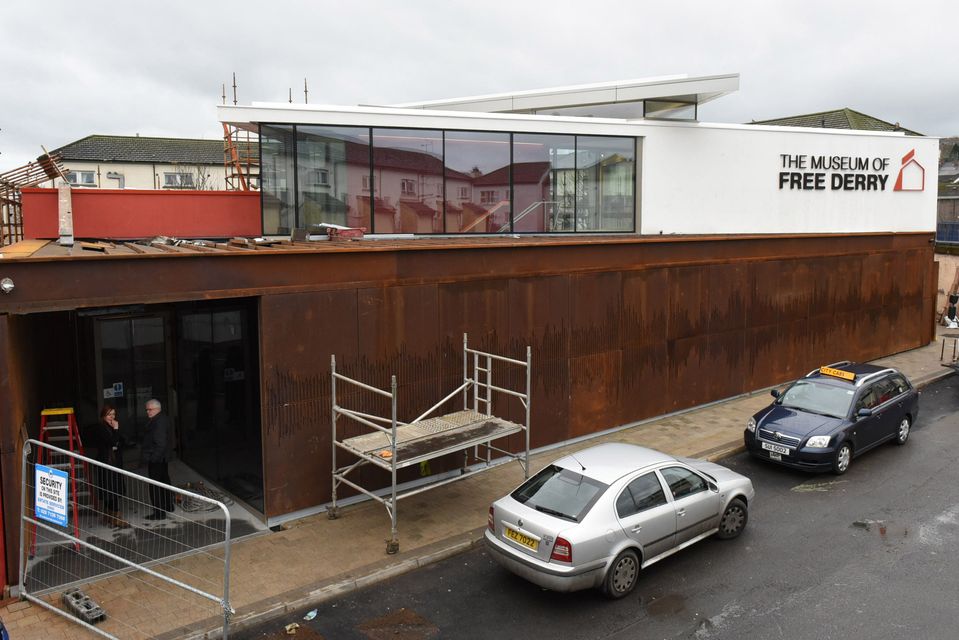New rules and red tape for international tourists entering the UK have “cast a cloud” over ambitions to boost tourism spending here to £2bn, the Economy Minister has said.
In what could be his last big policy announcement as minister, Sinn Fein Newry and Armagh MLA Conor Murphy revealed his vision of how to increase spending by overnight visitors by two thirds from £1.2bn.
He said there would be a focus on ‘peace tourism’, while vowing to reverse what he said was a historical neglect of tourism by the formerly DUP-dominated department.
Mr Murphy could vacate the ministry soon to take up a position in the Seanad, as he runs in the election to the upper house of the Oireachtas at the end of this month. MLAs Deirdre Hargey and Caoimhe Archibald have been tipped as successors, with the latter potentially moving from leading the Department of Finance.
Read more
Mr Murphy said peace tourism was an aspect of visitor interest which had been “underplayed and undervalued”.
“Quite a lot of tourists who come here come to see the legacy of conflict here, see the history of the place,” he said.
“But there has always been a sensitivity about how you promote that, and so I think we’re giving confidence to develop a way of promoting what is already here as peace tourism, in a way which is sensitive to all of the issues that flow from the conflict.”
He added: “There was always a sense that the tourism sector wasn’t being properly supported by the department.
“I think this helps turn that around and encourages the industry to know that we consider tourism to be critical part of our economy here and one which we want to see supported and developed in the time ahead.”
He said there were already “significant” attractions with a focus on peace tourism. “You go to the Museum of Free Derry and you see the numbers going there. I have never come out of our office on the Falls Road at any time of the year that there aren’t people down at the murals and people doing those black taxi tours.”
The Museum of Free Derry is an existing example of ‘peace tourism’ in NI, Economy Minister Conor Murphy has said
Electronic Travel Authorisation (ETA) was introduced last week for international visitors to the UK, requiring them to have an additional permit costing £10. It applies to international visitors coming into Northern Ireland from the Republic, despite pleas for an exemption.
Mr Murphy said: “There’s no doubt that that (ETA) cast a cloud over this.
“We were producing and working on this tourism strategy while we were lobbying the British Government to change their view in terms of bringing in a travel authorisation issue.
“They have gone ahead with it but we will continue to lobby them to point out that it’s a bad idea for Ireland and for international tourism on the island of Ireland.
“But we have a duty in the meantime to continue to support the tourism industry to try and help it grow.”
And he said he would have regrets about leaving the department without seeing his ambitions for the NI economy realised, if his Seanad candidacy is successful. “Yeah, of course, if I do end up leaving the economy department I will have regrets because I very much enjoyed my time here.
“But I do so in the knowledge that we have turned around the strategic direction of the department and its agencies… Whoever comes into position after me will carry on that work in the same way that I’ve carried it on.”
Asked if Deirdre Hargey, who deputised for Mr Murphy during a period of ill heath last year, would be his successor, he said: “That remains to be seen.”
The action plan launched in the Titanic Quarter was attended by leaders from tourism, including Tourism NI chief executive John McGrillen.
He said tourism leaders would keep lobbying for an exemption to the ETA for visitors coming from the Republic but would also work to ensure it wasn’t treated as more of a barrier than necessary.
“In reality, it’s quite simple, it’s quite easy to do and the core message we need to get across here is that for the sake of £10, you do not want to miss what Northern Ireland has to offer.”
Other aspects of the action plan include more funding for Tourism Ireland in its drive to draw international visitors to Northern Ireland, and an aviation policy to improve international connectivity.
